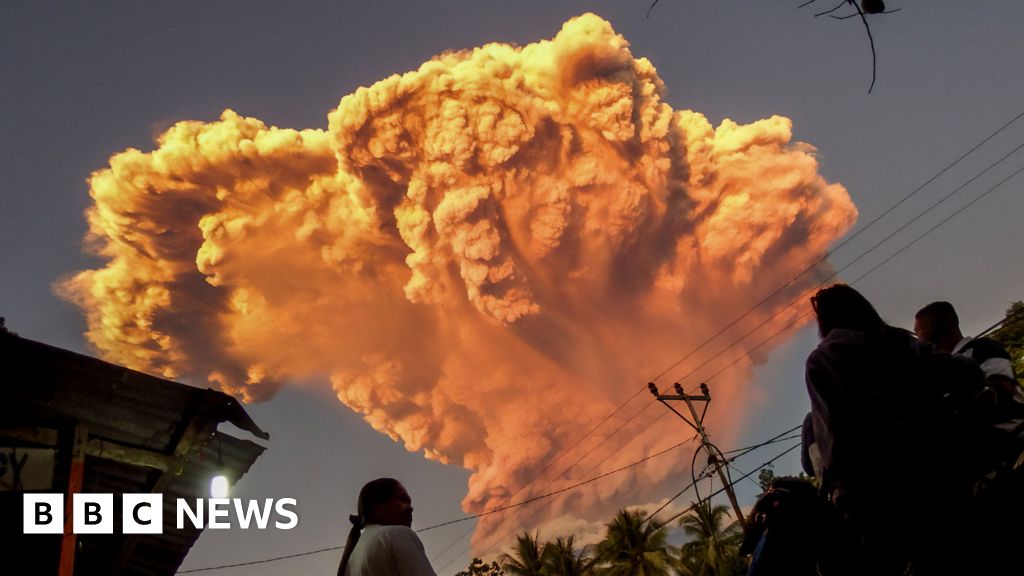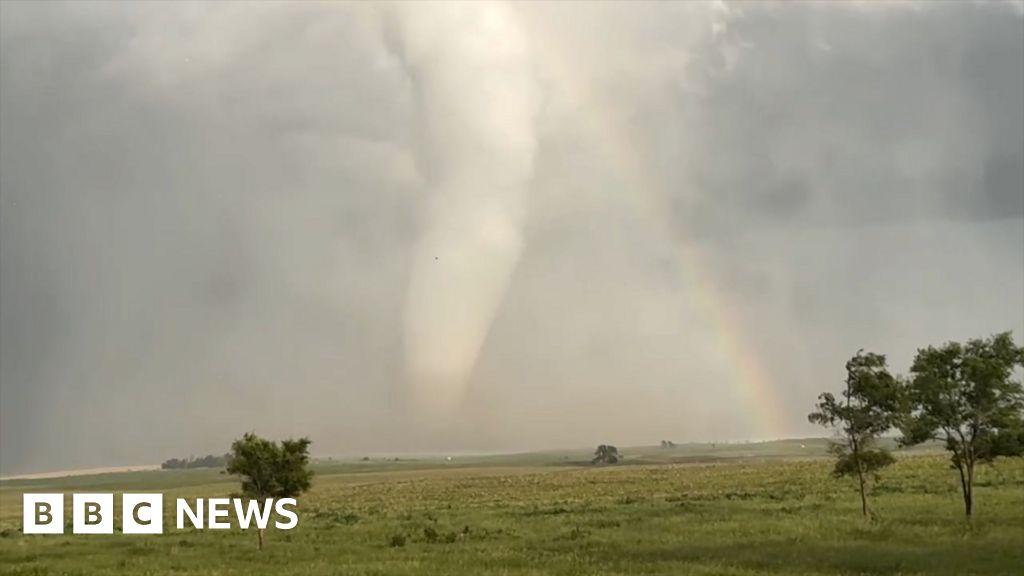ARTICLE AD BOX
By Laurence Peter
BBC News
Image source, AFP
Image caption,Russia has a heavy military presence at Ukraine's biggest nuclear plant near Zaporizhzhia
Ukraine has dismissed as "wishful thinking" Russia's plan to connect a giant Ukrainian nuclear power station to the Russian electricity grid.
Russian troops are occupying the sprawling Zaporizhzhia plant by the Dnieper River in southern Ukraine.
It is Europe's biggest nuclear plant. The Ukrainian staff are still operating it, but Russia has sent its own nuclear experts to monitor their work.
Russia's deputy prime minister has vowed to sell power from it to Ukraine.
Marat Khusnullin said Russia would integrate the Zaporizhzhia plant with Russia's energy system if Kyiv refused to pay for the plant's electricity.
Visiting Russian-occupied southern Ukraine on Wednesday he said "if the Ukrainian energy system is ready to receive [electricity] and pay for it, then we'll work, but if not - then the plant will work for Russia".
However a spokesman for Ukraine's state nuclear agency Energoatom said it would take years to link the plant to Russia.
"The plant only works in Ukraine's energy grid," Leonid Oliynyk told the BBC.
"The Russians can build a power line theoretically, but it will take a long time, like their Crimean bridge - several years," he said, referring to the bridge connecting Crimea, which Russia annexed in 2014, to Russian territory.
"Now the power station is working at a minimum level, but Kyiv remains in charge, all the power lines are controlled by Ukraine. The Russian statement is wishful thinking," Mr Oliynik added.
Normally the plant generates more than half of Ukraine's nuclear power and 20% of the country's total electricity supply. But now just two of its six reactors are operating.
Ukrainian forces still control the city of Zaporizhzhia, on the opposite bank of the Dnieper. The nuclear power plant is in Enerhodar, a town of nearly 53,000 built in Soviet times to house the nuclear workers.
There have been several protest rallies in Enerhodar against the Russian occupation, violently broken up by Russian security forces with tear gas and stun grenades.
During his visit Mr Khusnullin said "I think this region's future is to work in our friendly Russian family".
On 3 March Russian forces shelled the Zaporizhzhia plant, and later took control of it. Buildings around one of its reactors were damaged, according to Energoatom.
The UN nuclear watchdog, the International Atomic Energy Agency (IAEA), said radiation levels and reactor safety were not affected.
World leaders condemned Russia for the attack and Ukraine's President Volodymyr Zelensky accused Russia of "nuclear terror".
Watch: Zaporizhzhia nuclear plant appears to be on fire following shelling.
The IAEA says the situation at the plant now remains "fragile" and "unsustainable", as Russian troops keep the staff under tight surveillance, along with a team of experts from Rosatom - Russia's state nuclear agency. The IAEA says it is trying to negotiate an inspection visit to the site.
Mr Oliynyk said "the staff feel bad, because there's a lot of technical pressure on them, the Russians are behaving as occupiers". He said Russia was keeping about 500 troops and 50 armoured vehicles at the site. "They're checking documents, they don't let people speak freely and break up meetings in Enerhodar."
He insisted that Ukraine "will liberate the whole territory - no deals with the occupiers".
Russia's temporary occupation of Chernobyl in northern Ukraine - site of the world's worst nuclear disaster in 1986 - also alarmed world leaders.
The radiation level at the decommissioned plant is reported to be stable and within safe limits, but there are hotspots in places nearby where Russian soldiers dug trenches.
There have been some forest fires in the exclusion zone around the plant - not directly threatening it, Mr Oliynyk said. But he added: "firefighters cannot go there as so many mines were laid, it's too dangerous".
After Russia's 2014 annexation of Crimea and parts of the Donbas region, he said, Ukraine stockpiled nuclear fuel, so now it has enough to last two years.
Ukraine now has a deal with US power company Westinghouse to provide nuclear fuel, with the goal of replacing the 40% of nuclear fuel that Kyiv still gets from Moscow.

 3 years ago
41
3 years ago
41








 English (US) ·
English (US) ·